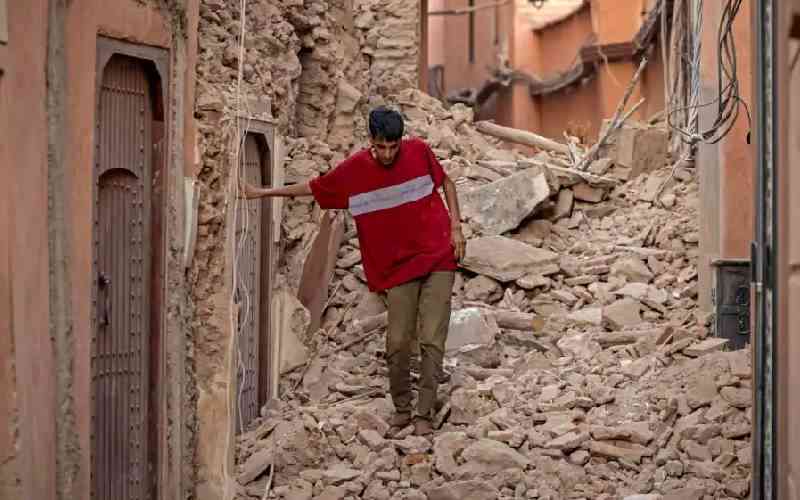×
The Standard e-Paper
Smart Minds Choose Us

A resident navigates through the rubble following a 6.8 magnitude quake in Marrakesh, Morocco, on Sept. 9, 2023. [VOA]
A rare, powerful earthquake struck Morocco late Friday night, killing more than 800 people and damaging buildings from villages in the Atlas Mountains to the historic city of Marrakech.